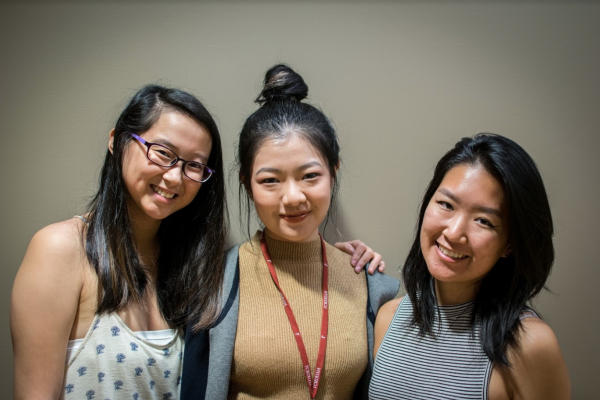Expats and International Students: Know the Difference
September 26, 2018
“How long did it take for you to walk from China to here?” This is a question my 13 year old brother heard. In real life. He came home from summer camp one year dumbstruck by this question from another camper.
“Why is your American accent so good?” Didn’t I just say that I used to live in America?
“Yeah, but still! It’s so good!” Right, of course. I forgot to mention that when you live in a foreign country you automatically forget every single thing from your old life. Silly me.
“Have you ever used Instagram before?” I lived in the U.S. for 12 years.
Or even, “Do you know what Amazon is?” Can you understand why this would be so frustrating? People can’t seem to grasp the concept that I was raised in a American centric culture.
For the last six years, my family and I lived in the faraway kingdom of “Asia.” When I was 12, my family moved from our American home in Long Island to the scary foreign country of China. I learned very quickly in my periodic trips back to the U.S. that there exists a strong stereotype that comes with being an international kid.
But let me be clear: there are two different kinds of international students. One is the kid that was born and raised in a foreign language-speaking country and is, subsequently, very different from the general American population. The other is the expatriate, the student with the American passport and customs that has been living overseas for an extended period of time.
Consider the character, Cady Heron, from “Mean Girls.” Cady lived in Africa for 12 years of her life. When she moved to Evanston, Ill., she suffered from the same cultural misconceptions that my brother did. Consider the iconic line from the movie: “Wait, if you’re from Africa, why are you white?” Take that quote and transpose it to my situation: For me, the question becomes “Wait, if you’re China, why is your English so good?” Cady’s parents are American. She speaks fluent English, yet she had lived overseas for most of her life. Cady Heron is an expatriate.
My brother and I are expatriates.
What people fail to understand is that these two different kinds of international students are drastically different. And no, my brother did not walk 7,364 miles from New York to China. That’s impossible because the Bering Strait is underwater and he’d have to swim. Even people whom I’ve explicitly told that I was not only born in the U.S., but also have been studying at an international school with an American curriculum, still ask silly questions just like that.
To be fair, the walking to China question was an extreme example. But when I speak to my childhood friends from kindergarten, I still inevitably get the question: “How is your English still so good?” Despite the fact that I go to an American school. Despite the fact that English is my dominant language. Despite the fact that I grew up with them and went to the same school with them for 12 years. Still, they can’t separate their opinions of me with the born-and-bred international student from China.
There’s absolutely nothing wrong with being the typical international student. The confusion — and my frustration — comes from people’s inability to separate my life with that of a student who has been living in China and attending local Chinese schools his or her entire life. On the Common App, for instance, there is no distinction between an expatriate and an international student. If you attend school in a foreign country, you are considered an international student. And should you be considered an international student, you are required to take the Fordham English Language Test. International students are also required to attend Global Transition, an international student orientation that takes place a week before American students move in and is geared towards acclimating international students to the U.S. culture and environment.
It was not mandatory for me to attend Global Transition since I hold a U.S. passport, however I still received frequent emails asking me to sign up for the program, where the days were filled with visa documents I didn’t need, cultural presentation explanations I already understood and mandatory activities designed to help us understand the U.S. better. Trust me. I know how to read a subway map.
I’m not complaining about Global Transition; in fact, I met some of my closest friends there. But if my own school, my fellow students and the damn Common App can’t grasp the cultural, lingual and educational differences between expatriates and true international students, we have a problem. While both the expatriate and the international student have lived outside of the country, they differ drastically in beliefs, knowledge and upbringing.
The next time you meet an “international student,” keep in mind the difference between an expatriate and a born-and-bred international student. The expatriate is not as foreign as you may believe. Expatriates speak fluent English, understand American pop culture and think in similar ways to you. To this day, I can still recite the Pledge of Allegiance from heart. We believe in the American dream, love in marriage and the pursuit of happiness.
Expatriates, at the very core of their being, are just Americans.













Expat • Nov 24, 2021 at 12:13 am
Misleading. American citizens studying abroad in an international school is considered as Domestic student with international credentials.